Voices of All of Us highlights the personal perspectives and experiences of program participants, partners, researchers, and leaders. These profiles chronicle individual journeys to medical research and the path to the All of Us Research Program. The profiles also amplify voices from communities historically underrepresented in research.
If you would like to recommend someone to be featured, please email allofuspress@mail.nih.gov. We welcome your suggestions.
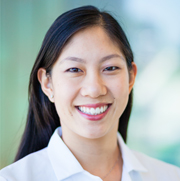
A Bold Vision for Big Data and Health Equity
Sally Liu Baxter, M.D., M.Sc., physician scientist and assistant professor of ophthalmology at the University of California, San Diego (UCSD), taps All of Us data to advance research on eye disease.
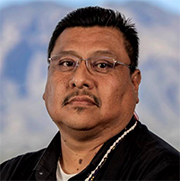
Tribal Traditions Inspire Miguel Flores Jr. to Cultivate Collaboration and Continuity
Arizona substance abuse counselor, traditional healer, and community leader Miguel Flores Jr. is committed to engaging Tribal communities in medical research in ways that respect Indigenous culture and customs.
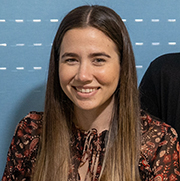
Dr. Normarie Torres-Blasco: A Voice for Comprehensive Health Care
Puerto Rico early-career investigator Normarie Torres-Blasco, Ph.D., is dedicated to studying the connection between mental health and chronic illness, improving access and reducing health disparities.
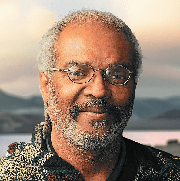
Ray Charles Lay Tunes Into Mental Health to Drum Up Understanding and Awareness
During National Minority Mental Health Awareness Month, All of Us Participant Ambassador Ray Lay openly shares lessons from a life marked by trauma, incarceration, military service, and homelessness.
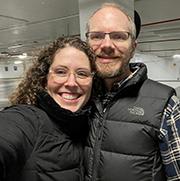
Josh and Carolyn Denny: A Personal Journey to Precision Medicines
Precision medicine is personal for All of Us Chief Executive Officer Josh Denny, M.D., M.S., and his wife, Carolyn Denny, M.B.A. Navigating the impact of rare diseases on their family has strengthened the couple’s commitment to advancing precision medicine to benefit all.
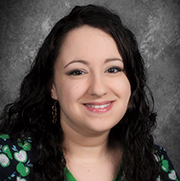
Fragile Like Kristal’: All of Us Participant with Disabilities Doesn’t Let Broken Bones Prevent Breaking Barriers
During National Disability Awareness Month in March, Voices of All of Us spotlights Kristal Nemeroff, RN, a school nurse, mother, and advocate for the disability community
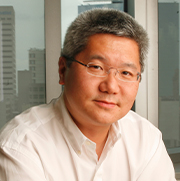
The Great Explainer: Dr. Brendan Lee Translates Genetics—the ABCs of DNA
As chair of the Department of Molecular and Human Genetics at Baylor College of Medicine in Houston, Texas, Brendan Lee, M.D., Ph.D., looks to make science easy to understand.
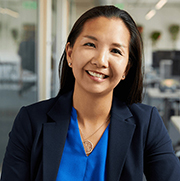
Dr. Alicia Y. Zhou: Impacting Public Health Through Personalized Genetic Information
Dr. Alicia Y. Zhou, chief science officer at Color Health, Inc., is passionate about providing valuable health information to All of Us participants so they can learn more about their own health history.
Rebuilding Trust in Public Health Motivates Dr. Yanira Cruz to Partner with All of Us
As president and chief executive officer of the National Hispanic Council on Aging, Dr. Yanira Cruz raises awareness among older Hispanic adults about the importance of participating in medical research.
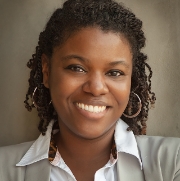
A Heart for Service Drives Dr. Eboni Winford to Advance Health Research
Dr. Eboni Winford directs the All of Us Research Program at Cherokee Health Systems in Tennessee.
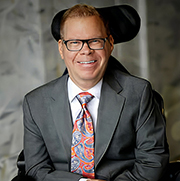
Disability Advocate Stephen Mikita Pushes the Bounds and Helps Guide Medical Research
All of Us Research Program participant partner Stephen Mikita continues to pave the way for individuals with disabilities to advance precision medicine.
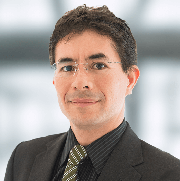
Helping Hispanics Lead Healthier Lives
Edgar Gil Rico guides Todos Juntos: All of Us to engage the Hispanic community in biomedical research.
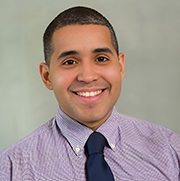
Researcher Billy A. Caceres Taps All of Us’ Diverse Data to Benchmark Health Disparities
Dr. Billy A. Caceres analyzes All of Us data to reduce cardiovascular health disparities in sexual and gender minority adults.
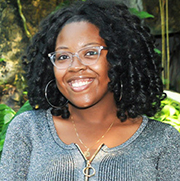
Atiya Shahid: A Story of Survival, Resilience, and the Power of Mentorship and Research
Graduate student Atiya Shahid embodies the vision of the All of Us Research Program, striving to improve health outcomes through her dedication to research and higher education.
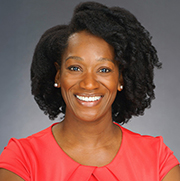
Thirst for Knowledge and Data Drives Army Veteran to All of Us
U.S. Army Veteran Keisha Bellamy, R.N., joined the All of Us Research Program to improve and expand health information.
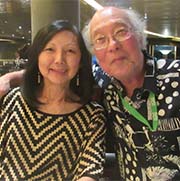
Longtime Volunteers Believe Big Data Will Bring Better Health to All
Seattle participants Lin and Kean Engie joined the All of Us Research Program to help build a large data set to support medical breakthroughs: “It’s important to collect big data from a large population to know the general health of the nation,” said Lin Engie.
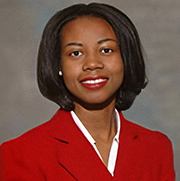
Connecting Social Environment and Health Outcomes to Pinpoint Disparities: Harvard Medical School Researcher, Physician, and Parent Cheryl R. Clark
As Co-Chair of the All of Us Research Program’s Social Determinants of Health Task Force, Harvard Medical School Researcher, Physician, and Parent Cheryl Clark has led work to ensure participants report on social factors that influence health. “There are things you can’t investigate unless you ask people, so you can learn about their experiences.”
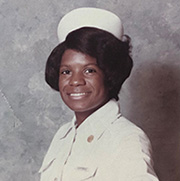
Building Bridges to Better Health: South Carolina Participant Ambassador Joyce Ann Bell Winkler
Education was the bridge for Joyce Ann Bell Winkler, R.N., MPH, leading her to join the first integrated high school in her rural South Carolina community and then onto become a research nurse and principal investigator for the All of Us Research Program at a Federally Qualified Health Center in Columbia, South Carolina.
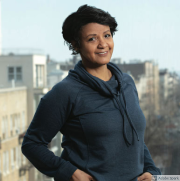
New York Participant Ysabel Abreu: A Profile in Perseverance and the Humanity in All of Us
As a member of the All of Us Research Program’s Community Participant Advisory Board, Abreu is a strong advocate and proponent: “I believe in the mission of All of Us to make visible people who have been invisible. Making people visible leads to better health outcomes.”
 U.S. Department of Health & Human Services
U.S. Department of Health & Human Services
